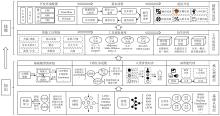
农业图书情报学报 ›› 2024, Vol. 36 ›› Issue (8): 34-42.doi: 10.13998/j.cnki.issn1002-1248.24-0670
基于“知识-技能”导航的人工智能素养通识教育课程构建
李白杨, 孙榕
- 南京大学 前沿科学学院数据管理创新研究中心,苏州 215163
Construction of an AI Literacy General Education Curriculum Based on "Knowledge-Skills" Navigation
Baiyang LI, Rong SUN
- Research Institute for Data Management Innovation, Nanjing University, Suzhou 215163
摘要:
[目的/意义] 随着生成式人工智能技术的迅速发展,人工智能素养教育的重要性日益凸显。人工智能通识课程需兼顾知识普及和技能培养,满足不同背景学习者的多元化需求,以弥合“认知鸿沟”和“使用鸿沟”。 [方法/过程] 以南京大学“生成式人工智能前沿应用探索”课程为例,提出“知识-技能”导航的课程框架,设计基础认知、核心理解、工具应用到创新开发4个层次,采用模块化教学方式,结合在线资源与实验设备,推动理论与实践结合。 [结果/结论] 基于“知识-技能”导航的课程框架能够系统提升学习者的人工智能素养,通过循序渐进的知识传授与技能培养,实现普适性与个性化并重,为高校开展人工智能素养通识课程提供了理论支持和实践案例。
中图分类号: G252.7
李白杨, 孙榕. 基于“知识-技能”导航的人工智能素养通识教育课程构建[J]. 农业图书情报学报, 2024, 36(8): 34-42.
Baiyang LI, Rong SUN. Construction of an AI Literacy General Education Curriculum Based on "Knowledge-Skills" Navigation[J]. Journal of Library and Information Science in Agriculture, 2024, 36(8): 34-42.





